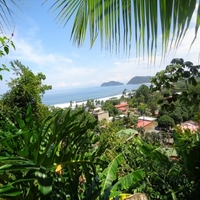With course selection for the spring comes a slate of exciting SLS-affiliated courses! And in a special twist, we are also sharing the details of a brand new SLS- affiliated study abroad program. Read on and get excited to register!
SLS 3120 Foundations of Sustainable Systems, Beril Totkay, PhD, and Kim Cobb, PhD
Create sustainable communities for the 21st century! Beril Totkay and Kim Cobb are very excited to teach a key SLS class (SLS 3120, Foundations of Sustainable Systems) again in the spring! They designed this course to help students think about the big questions of our day: How can we accelerate progress towards a more sustainable world? How do we create sustainable systems for the 21st century? How do we advance sustainability at multiple scales, including a community, a company, a supply chain, a region, or an entire nation?
Since climate change is such a pressing issue for our times, the course will have a primary focus on climate and energy. With contributions from Dr. Jenny Hirsch, Director of the Center for Serve-Learn-Sustain, the course will place a special emphasis on social innovation and community-based approaches to change. Students will have the opportunity to learn from a variety of guest speakers and to work on a project with a real-world community-based partner (e.g. Partnership for Southern Equity, Mayor’s Office of Resilience, Campus Sustainability, Center for Sustainable Communities, Southface, etc.).
Students from every major at Georgia Tech would benefit from taking this course, as it is designed to deliver hands-on experience in enacting systems change in complex environments. Climate change is a multi-faceted, global-scale threat that will touch every industry, every city and every community within the coming decades, if it hasn’t already. Solutions will come from every sector of the economy, with outsize benefits for those individuals, companies, and communities that provide effective, scalable models for systems change as early as possible. Register for this class and become part of the solution!
Note: This course fulfills requirements in two SLS Signature Programs: Sustainable Cities Minor and Innovating for Social Impact.
ENGL 1102: The Rhetoric of Drugs, Hannah Markley, PhD
A special collaboration intended for (but not limited to!) freshman majors in ChBE, Brittain Fellow Hannah Markley designed aspects of this class in collaboration with Elsa Reichmanis, Professor of Chemical and Biomolecular Engineering. The course considers how the relationship between the pharmaceutical industry, patients, and communities informs choices made by chemical engineers.
From depictions of drug use and addiction in television and film to newspaper and magazine articles reporting on the opioid epidemic, our culture is beset by conflicting representations of the drug as both pharmaceutical and recreational, legal and illegal. Contemporary debates about the benefits and side effects of caffeine, the legalization of cannabis, and alcohol abuse also ask us to question our assumptions about potentially beneficial and potentially harmful effects of familiar substances. In light of the proliferation of drugs in our culture, how can we understand them in relation to the shifting social and political contexts that define them? What is a drug and who decides?
This first-year writing course asks students to read and write about representations of drugs in multiple genres and forms using various compositional modes. Students will encounter print, visual, oral, spatial and gestural texts and develop critical thinking and reading skills that help them analyze how different rhetorical situations produce different ideas about what defines a drug. By learning to analyze, synthesize, and evaluate the texts and ideas they encounter about drugs and culture, students will develop their writing skills and situate their written arguments in broader public and scholarly conversations by citing and summarizing the sources from which they draw. Over the course of the semester students will come to understand the written, oral, visual, electronic, and non-verbal work they do as part of a writing process that requires them to research, draft, revise, edit, and reflect on the practice of writing over time. Each assignment in the course will include a draft, revision, and reflection element, encouraging students to see their written work and daily writing assignments as part of a long-term process that will culminate in a final project. The final project asks students to develop a poster campaign, event, poster session, or podcast that effectively communicates knowledge about drugs and culture that they have developed over the semester for a broader public.
SLS Affiliated Study Abroad: Nature, Governance, and Sustainability in Costa Rica
Summer 2019
Associate Professor of Biological Sciences, Michael Goodisman, and Professor of Public Policy Juan Rogers have created a new study abroad opportunity for students interested in biology, philosophy and the intersection of the two through six weeks of study in Costa Rica.

This study abroad program will provide a unique opportunity for students to learn and live in the tropics of Central America. Students will take two classes, BIOL 4813 Tropical Biology & Sustainability and PHIL 3127 Science, Technology, and Human Values, that will introduce students to biological, governmental, and societal interactions that help communities protect natural resources, preserve biological diversity, support local innovation, strengthen societal ties, and bolster human capital. Students will travel through Costa Rica and visit a variety of spectacular locations where they will learn about the biological systems and societal practices that make Costa Rica one of the most successful countries in Central America.
Please contact Professor Goodisman (michael.goodisman@biology.gatech.edu) for more information about the program.